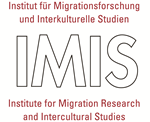Europe received an increased number of refugees in 2015. Housing in inadequate mass accommodations made refugees prone to infectious disease outbreaks. In order to enhance awareness for infectious diseases and to early detect clusters, we implemented a syndromic surveillance system in mass accommodations with integrated health service providers in Berlin, Germany. Health care workers transferred daily aggregated data on 14 syndromes to the Robert Koch-Institute. Clusters of infectious diseases syndromes and single cases of particularly outbreak prone disease produced a signal according to an algorithm. We implemented and evaluated the system in three mass accommodations. Between May 2016 and April 2017 9,364 syndromes were reported; 2,717 (29%) were infectious diseases, of those 2,097 (77%) were acute respiratory infections, 262 (10%) skin parasites and 182 (7%) gastrointestinal infections. The system produced 204 signals, no major outbreak was detected. The surveillance reinforced attention for public health aspects of infectious diseases in the field and provided real-time data on refugees’ health. The tool is available online and was evaluated as being feasible and flexible. It complements traditional notification systems. We propose usage of syndromic surveillance when laboratory testing is not available and real time data is needed.
Berliner Syndromische Surveillance bei Aslysuchenden (BeSSA)
| Projektart | Projekt der Institution |
| Finanzierung |
|
| Themen |
|
| Disziplinen |
|
| Projektwebseite | www.rki.de |
| Laufzeit | 03/2016 ‒ 06/2017 |
| Geographischer Fokus |
|
| Institutionen |
|
| Beteiligte Personen |
|
| Kurzbeschreibung |
|







